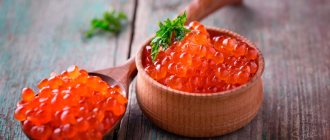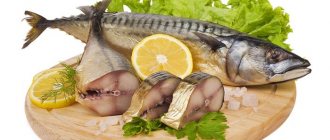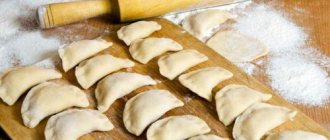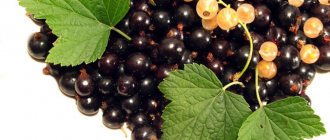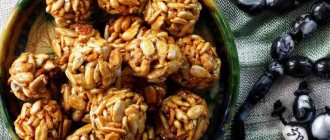What foods should you avoid?
In order for the baby to receive enough nutrients, vitamins and minerals with milk, the mother should adhere to a balanced and varied menu for the nursing mother. Food must undergo strict quality control, be hypoallergenic, fresh and environmentally friendly. Products containing preservatives, artificial colors, flavor enhancers and other chemical additives should be excluded from the diet.
While you are breastfeeding, new products should be introduced into your menu gradually, preferably one new product every two weeks - so that you can observe the child’s well-being, his mood, the condition of his skin and stool.
There are also general recommendations about what foods a nursing mother can include in her menu, and what she will have to give up for now. What are these requirements?
Breastfeeding: prohibited foods
- Alcohol
- Coffee, cocoa, strong tea
- Chocolate
- Citrus and exotic fruits
- Spicy foods, herbs (mint) and seasonings
- Raw onion and garlic
- Soy products
- Seafood, caviar
- Mushrooms
- Chicken eggs in case of allergies in a baby
- Peanut
- Honey
- Vegetables, fruits and berries of orange and bright red color
- Marinades, smoked meats, canned food, fermented products (kvass, cheeses, sauerkraut)
- Carbonated drinks
- Products containing food additives, colorings and preservatives
- Be careful with foods that cause gas (all types of cabbage, legumes, grapes, black bread)
Some of these products have a stimulating effect on the child’s nervous system and interfere with normal sleep; others are difficult to digest by the still imperfect digestive tract; still others can cause food intolerances and allergies. Fortunately, there are many more foods that are allowed on the menu of a nursing mother and her baby, and all of them can be gradually introduced into the diet as the baby grows.
As a rule, a nursing mother's diet changes slightly from month to month - along with the needs of the child's growing body.
Vitamins, minerals and other essential substances for breastfeeding
Many experts are confident that a newborn will receive vitamins through breast milk in any case: it does not matter whether the mother takes vitamin-mineral complexes or not. It will take the necessary substances from the mother’s body, especially from storage areas such as teeth, hair, and nails. This is why doctors advise breastfeeding women to take an IUD, this is especially important in the autumn-spring periods: March and October.
Let's look at the most important vitamins, minerals and nutraceutical supplements, the intake of which is extremely necessary during lactation, according to experts.
Omega-3-6-9 fatty acids are involved But they are no less important for the mother, as they help the vessels remain elastic, prevent cholesterol from accumulating in them, and prevent swelling and excess weight gain (doctor’s opinion, lactation consultant Maria Shchekina).
It is important to remember that only Omega-3 (DHA or DHA+EPA) must be taken as a supplement at a dose of at least 750/1000 mg per day. And, if the use of Omega-3 thins the blood, then Omega-6, on the contrary, makes the blood thicker, slows down metabolism, and in case of overdose can provoke the development of inflammation. To prevent this from happening, it is enough to obtain Omega-6–9 from food and not use it in supplements (opinion of endocrinologist Natalya Zubareva).
How to compensate for the lack of Omega 6–9 with food? Omega-6–9 are found in unrefined oils, raw nuts and seeds, grains, lentils, chickpeas, eggs and organ meats.
Sunflower Lecithin
Lecithin is one of the main building materials of the cell membranes of the body, it is especially important for the brain of mother and child. A third of the human brain and the nervous tissue of other parts of the nervous system are made from lecithin.
The lecithin component, phosphatidylcholine, as a result of a biochemical reaction with vitamin B5 is transformed into acetylcholine, which is a neurotransmitter responsible for brain function. Therefore, taking lecithin during lactation is the key to good mental activity of the child and mother, as well as their good health. It is important for pregnant and lactating women to take sunflower lecithin, as it is highly purified and hypoallergenic. The optimal dosage form is lecithin in powder, the norm of which is 4–6 g (obstetrician-gynecologist Anna Igorevna Stelmashenko).
Mom's nutrition: the first weeks
Immediately after childbirth, nutrition for a nursing mother will not be varied. Don't worry, this is temporary! And even with a limited range of products, you can create an interesting menu for yourself. Take a close look at the list recommended to you by your doctor and choose three or four options for breakfast, lunch and dinner. Pediatrician-approved products are your personal construction kit.
In the first 10 days, the mother pays close attention to her baby’s reactions to feeding. That is why at this time the menu is limited to products that are less likely to cause various allergic reactions in a child. Baked apples, bananas or pears, buckwheat and barley porridge, and vegetable soups are good for the first 10 days. Unrefined oils are best suited as seasonings: corn, olive, sunflower.
Ask the rest of your family to follow your diet during these three to four weeks so that you don't feel lonely and other people's delicacies don't deprive you of your will. And preparing three or four versions of dishes (for yourself and for others) is not the best activity for the mother of a newborn.
After 10 days, you can add fermented milk products (kefir, yogurt, cottage cheese, fermented baked milk) and vegetables (potatoes, carrots, beets, light pumpkin) to the menu. They are best baked, steamed, stewed or boiled.
In the second month after birth, the mother of an infant can gradually return eggs (preferably quail), grain bread or bread with bran (a little and only if you are sure that you do not have gluten intolerance), unsalted cheeses, durum wheat pasta, dried fruits ( dates, dried apricots, prunes), biscuits. And you should still avoid black tea and coffee, alcohol, sugar and large amounts of salt.
In the first two months after giving birth, it is very useful to keep a food diary: hang a table in the kitchen and enter information about what exactly you ate for breakfast, lunch and dinner, as well as during snacks and spontaneous raids on the refrigerator.
Nursing mother: what to drink
Note that milk is formed from blood plasma, therefore, no matter what liquid you drink, it will not greatly affect the composition and quantity of milk in any special way. Any drinks - be it tea with or without milk, a decoction of herbs or just water - are transformed in the intestines, the water and its components are absorbed separately. It is often believed that to increase the fat content of milk you need to drink tea with condensed milk, and young mothers obediently pour liters of the sweet drink into themselves. However, this amount of calories (and condensed milk contains both fat and sugar) will not benefit the mother’s figure. Milk, even condensed milk, is a potential allergen for the baby. Therefore, you should not be overzealous with this drink. If you love it, limit yourself to 1-2 glasses a day. If you don't like him, don't force yourself. It has been noticed that the intake of warm drinks increases the flow of milk, but this is equally true for any liquid - boiled water, herbal or regular tea, compote. Therefore, choose according to your taste what you like best.
It is important to take into account the quality of ordinary drinking water - it should be bottled, filtered or boiled drinking water. You should not drink tap water - it is of very poor quality and must be filtered and boiled before drinking.
Many women love coffee, green tea or fruit drinks, freshly squeezed juices, and kvass is held in high esteem in the summer. These drinks are quite acceptable, you just need to know when to stop and monitor your baby’s individual reactions to them.
In addition, when choosing a drink, mom needs to remember about its biological properties. Coffee and strong tea stimulate the nervous system, so you need to take them in the morning, before noon, then your baby will not be excited by caffeine in the evening and will not become capricious. Kvass and grape juice can cause fermentation in the intestines, so if a child has colic or unstable stools, such drinks should be treated very carefully.
Fresh juices will be useful, but remember, in concentrated form they irritate the stomach, and bright fruits can cause an allergic reaction in the baby. Therefore, they should be diluted by half with water. And if you are trying juices for the first time, you need to drink very little and monitor the reaction of the baby’s skin and stool during the day.
What can nursing mothers eat from 0 to 2 months?
- Apples, pears, bananas (baked)
- Cereals (buckwheat, barley, corn, rice)
- Soups - vegetarian
- Quail eggs
- Cereal products: durum wheat pasta, grain and bran bread
- Drinks: herbal or weak black tea, fruit drinks, dried fruit compotes
- Fermented milk products (kefir, plain yoghurts, cottage cheese, fermented baked milk)
- Steamed vegetables (potatoes, carrots, beets, light pumpkins)
- Quail eggs
- Biscuits
Nutrition for a nursing mother: from 2 months to six months
Starting from 3 months, you can gradually introduce some foods that were previously prohibited into your diet. After consuming each of them, you need to carefully monitor your baby’s reaction: if he has even a hint of an allergy, this product should be excluded and tried again in about a month. It is possible that the allergic reaction was simply a symptom of the immaturity of the baby’s digestive tract. Now you can add to your menu:
- Pearl barley, oatmeal, wheat and semolina porridge;
- Fresh fruits (not tropical and not containing red pigment);
- Juices (from green and yellow apples, soft pumpkin, carrots or beets);
- Sour cream;
- Morse made from blueberries, lingonberries, cranberries, rose hips.
You can also try to gradually include fresh onions and nuts in your diet (except pistachios and peanuts, which should be tried with caution, a couple of pieces a day). But the listed products will affect the taste of the milk, which the baby may not like. Therefore, it is important to know when to stop and be attentive to the behavior of the baby. Although scientists say that a baby’s eating habits begin to form in the womb: when the baby gradually swallows amniotic fluid, then his first acquaintance with his mother’s diet occurs.
Can I drink milk?
You should still be careful when handling cow's milk protein, as it often causes an allergic reaction in children. It is this that can cause abdominal pain in a child, so you should be careful when handling cow's milk products. Alternatives include goat milk products, including cottage cheese and plain yoghurts.
In addition to proteins, fats and carbohydrates, milk contains some vitamins and microelements, and its especially useful components are calcium and phosphorus. If, having included milk in your diet, you have not noticed a negative reaction in your baby, you can continue to consume it. Fermented milk products, such as kefir and cottage cheese, are especially useful now. A convenient option may be Agusha curd, rich in calcium and vitamin K2, which is necessary for the absorption of calcium by the bones.
At 4–6 months of life, the baby already tries his first complementary foods. At this point, you have generally learned how he reacts to milk composition based on changes in your diet. Now you can gradually begin to expand your menu by introducing beans, potatoes, mild cheeses and fish.
But remember that the meat of some types of fish may have a high content of heavy metals. Their concentration in the meat of shark, marlin and swordfish can significantly exceed the permissible limit; such fish should be completely excluded from the diet. Varieties such as mackerel, pink salmon, sockeye salmon, trout, and salmon can cause allergies. From the 6th month, you can begin to gradually introduce fish into the menu, but be sure to carefully monitor the baby’s reactions.
And of course, you should not eat raw fish, sashimi, or sushi. The pathogens with which she can be infected are extremely dangerous for both mother and baby, and medications that destroy the infection are incompatible with breastfeeding.
What to drink while breastfeeding: liquids
According to pediatrician Anna Gordeeva, during lactation a woman needs to drink as much as she wants. There are some restrictions on strong drinks. For example, it is better to avoid coffee, strong black and green tea in the first time after the birth of the baby, as they contain caffeine, which can pass through breast milk to the newborn and cause him overstimulation. Coffee and cocoa are also strong allergens.
When lactation is established and the baby reaches the age of 3-4 months, you can drink a small cup of coffee in the morning, or even better, replace it with a chicory drink, which has a good sedative effect and can even reduce the symptoms of intestinal infant colic. Weak black and green teas are also best consumed in the first half of the day.
Whole milk, or rather milk protein, is also a strong allergen. At the beginning of breastfeeding, a nursing mother is allowed to drink no more than one glass of milk per day. This restriction does not apply to fermented milk products, since milk protein is partially broken down in them.
Women during lactation should avoid sweet carbonated drinks, as they can also cause gas in the baby. It is optimal to drink freshly squeezed non-allergenic juices - from apples or pears, diluted half with still mineral water.
It is also believed that during this period it is better to quench your thirst with regular drinking water. In the afternoon, you can drink various herbal teas, such as chamomile. By adding lemon balm and fennel to such herbal drinks, you can reduce the likelihood of colic in your baby.
There are also special pharmacy lactation teas containing cumin, nettle leaves, and clover. When drinking herbal teas, it is necessary to monitor the manifestations of allergies in the baby.
Nutrition for a nursing mother: from 6 to 12 months
At six months, mother can gradually expand her diet, but preference should still be given to boiled, stewed, steamed or baked dishes. Try small quantities of fruits that you have previously abstained from. And it is better to conduct such experiments in the morning - so that during the day you can notice the baby’s reaction if it occurs. What you can try to include in your diet for 6 to 12 months:
- Meat (beef, chicken)
- Beans and legumes
- Boiled and stewed fish
- Seafood
- Zucchini, squash
- Cauliflower, cabbage, Brussels sprouts, broccoli (with caution)
- New fruits (moderate)
- Any nuts (except peanuts)
- Garlic
In the second year of the child's life, the mother returns to her normal diet - of course, taking into account the baby's preferences, if she continues to breastfeed.
To avoid allergies
While you are breastfeeding, you should avoid foods that cause allergies in your baby. Be sure to monitor your baby's reactions and observe how changes in your diet affect your baby's behavior, the condition of his skin, as well as the frequency and nature of stool.
There are several food groups that are best excluded from your diet during feeding.
- First of all, these are coffee, tea, alcohol, carbonated drinks and chocolate.
- Also on the list of prohibitions are exotic (especially citrus) fruits, soy derivatives, seafood, raw and lightly salted fish and products containing various chemical additives (preservatives, flavor enhancers).
- Sweet, fatty desserts should also be avoided while breastfeeding.
If a baby is predisposed to allergies, the mother should be especially careful about her diet. In this case, you need to limit your consumption of cow's milk protein. If a mother abuses these products, the baby may develop severe allergies, bloating and other unpleasant symptoms.
It is worth reducing the consumption of another protein - gluten, which is present in all cereals except rice, buckwheat and corn.
In children with a hereditary predisposition to allergies, a pigment that turns vegetables and fruits red often causes a reaction. Therefore, you should be careful about red fruits and berries in your diet.
Most often, allergies occur to cow's milk protein, chicken eggs, nuts and fish (more than half of all cases).
To choose the right products for her menu, a nursing mother can use the funny “traffic light rule”: the red, yellow and green colors of the products correspond to the traffic lights - from prohibitive red to permissive green.
Some decoctions, like coffee, can cause a negative reaction in a baby. This is ginseng (stimulates the nervous system), infusion of hawthorn (lowers blood pressure), sweet clover (contains substances that impair blood clotting), and mint.
Any new product is introduced into the diet of a nursing mother no more than once every two weeks.
If you notice signs of allergies in your baby
It may happen that, despite all the mother’s efforts to follow a diet that is as safe as possible for the baby, it is not possible to protect him from allergies: the mother could treat herself to a strawberry during the summer season or a tangerine on New Year’s Eve. How do you understand that your child’s body is signaling that he or she has a food allergy? What are the signs of allergies?
- Skin redness
- Excessive dryness of the skin or, conversely, its wetting
- Child's anxiety
- Bloating, colic, vomiting
- Diarrhea or constipation
- Difficulty in nasal breathing
If several of the above symptoms appear, you need to carefully look at your diet and remove recently introduced foods from it. After all manifestations of allergies have disappeared in your baby, you can carefully check your list of foods consumed for the presence of allergenic ones (and exclude them for the entire time of breastfeeding), gradually begin to introduce foods in small quantities (no earlier than a month) and carefully monitor the reaction. baby. The dose can be increased every few days. If there is no reaction in the baby’s skin and gastrointestinal tract, we can conclude that the product is not dangerous for him, and calmly eat it (in reasonable quantities!).
Diet for mom figure
A few months after giving birth, if there are no contraindications, the mother can slowly begin to take care of her figure: do exercises, adjust her diet and gradually expand her diet - after all, the most strict period of the first weeks after birth is over.
As a rule, the weight gained during pregnancy gradually begins to fall off after the 3rd month, when the mother’s body has become accustomed to the new rhythm and provided proper nutrition. The process of breastfeeding itself contributes to this, as well as, of course, the new, busy schedule of the young mother.
If the weight does not go away, you should reconsider your diet and change something in it, but in no case resort to strict diets when feeding an infant - this can harm the baby! Nutrition should be varied, but balanced and as healthy as possible.
When feeding a mother who wants to lose weight, a mother's diet must include protein of animal origin, as well as fermented milk products (if the baby is not allergic to cow's milk protein), vegetables and herbs. Green leafy vegetables (spinach, sorrel, lettuce) contain a lot of calcium, vitamins, and microelements that promote recovery after childbirth, as well as the normal functioning of the gastrointestinal tract. Not too sweet fruits and berries of soft colors are an excellent source of vitamins and antioxidants; they can be included in the menu.
It is worth excluding vegetables with a high starch content from the diet, and moving the intake of slow carbohydrates (bread, cereals, pasta) to the first half of the day. The same applies to sweets, which are generally best removed from the menu for this period. An exception may be, for example, dry unsweetened cookies.
And of course, drink plenty of fluids! It not only helps maintain water balance, but also stimulates lactation, especially if it is a warm liquid: a cup of warm drink 10 - 15 minutes before feeding stimulates the release of oxytocin and causes a flow of milk.
Breastfeeding is a wonderful time when a new mother has the opportunity to change her eating habits, learn healthy recipes and lay the foundation for a new, healthier lifestyle for years to come. We are sure that a nursing mother will no longer be able to change some of the eating habits acquired at this time after stopping breastfeeding, because they are aimed at maintaining the health of both babies and their adult mothers. Take care of your health! A breastfeeding diet for weight loss can be delicious!
How much should you drink while breastfeeding?
The answer to this question can be found very easily. Normally, a woman needs to consume from 1 to 2 liters of fluid per day to maintain her body in working condition and optimal metabolism, depending on the time of year and the degree of sweating. The minimum possible for the normal metabolism of the female body is a volume of 800 ml of liquid per day (including liquid food); below this level, tissue dehydration and bouts of excruciating thirst occur.
When breastfeeding, on average, the female body produces about 1–1.5 liters of milk per day, depending on the age of the child. To produce it, this liquid must be obtained from somewhere, which means that in addition to the usual needs, a woman must drink about 1 liter of water. From this we conclude that a nursing mother needs about 2–2.5 liters of fluid per day.
This need is regulated by the physiological mechanism of thirst, which is especially pronounced in the first weeks after childbirth. This is due to the influence of the hormone oxytocin, which, along with the milk ejection reflex, also turns on the thirst mechanism. During the first weeks of breastfeeding, women are often very thirsty. This is normal, the body gives a signal that it needs to replenish fluid reserves so that dehydration does not occur. Lactation consultants recommend that mothers always keep a bottle or cup of water next to them during feedings and drink whenever they want.




